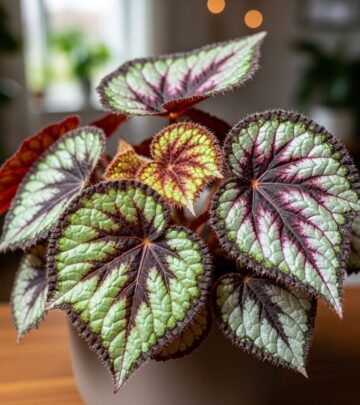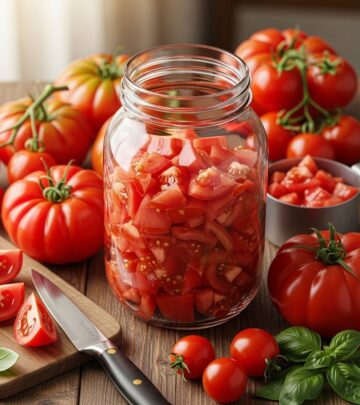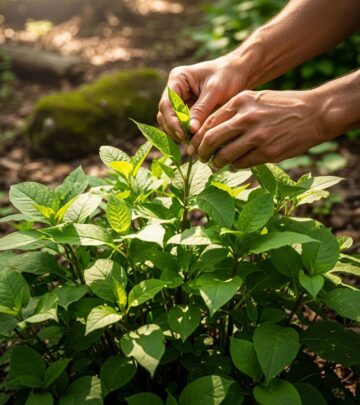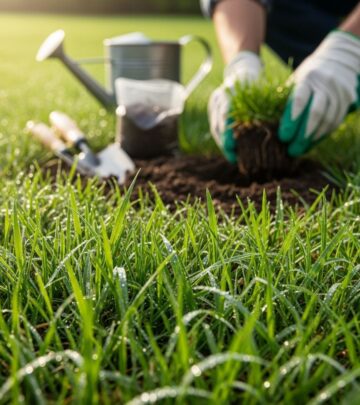Dahlia Sunlight Requirements: Complete Guide To Sun And Shade
Learn how to give your dahlias the perfect sunlight balance for robust blooms, whether you garden in cool or sweltering climates.
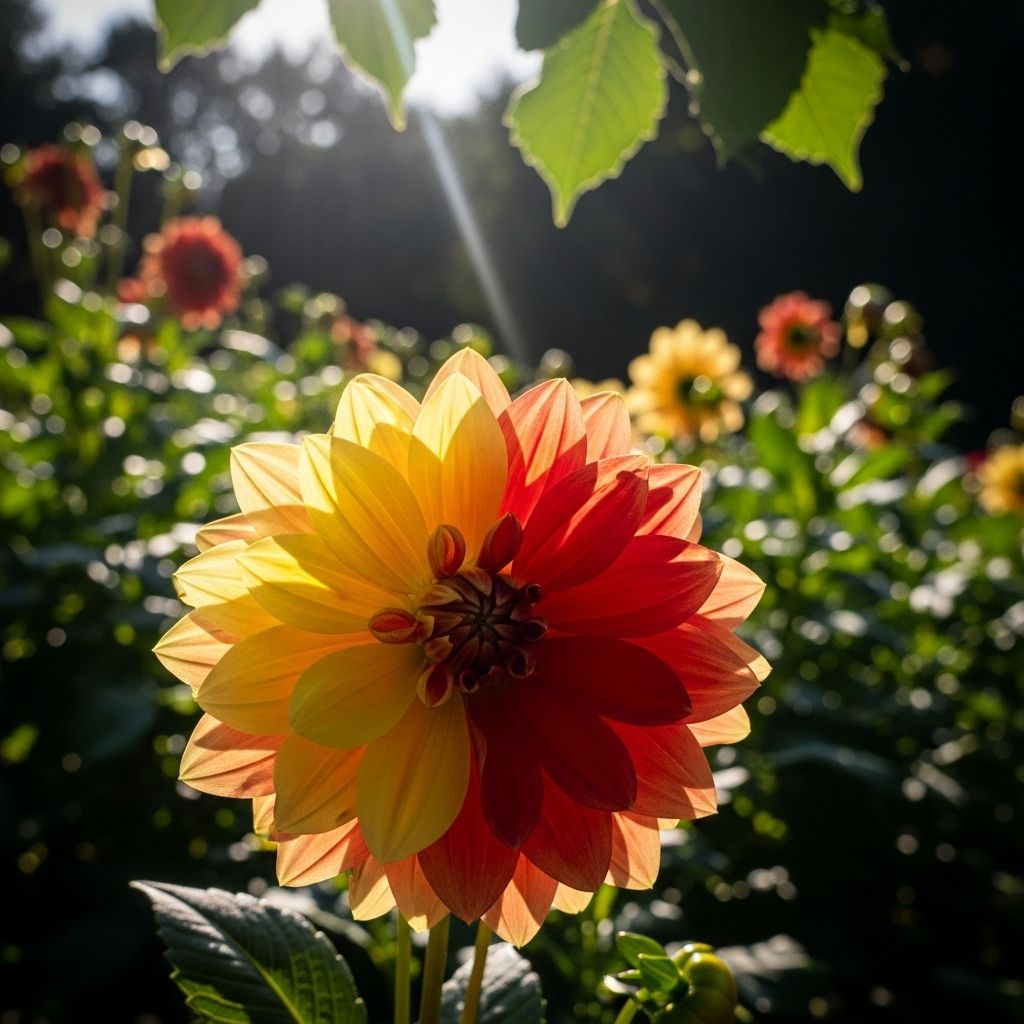
Image: HearthJunction Design Team
Do Dahlias Like Full Sun, Partial Shade, or Fully Shaded Areas?
Dahlias are famed for their vibrant colors and dramatic blooms, making them a highlight in many gardens. To achieve their best performance, understanding their sunlight requirements is crucial. While most dahlia cultivars prefer full sun, specific growing conditions can influence whether they flourish or falter. This guide explores whether dahlias need full sun, partial shade, or can tolerate full shade, and provides actionable advice for gardeners in hot and moderate climates.
The Short Answer
Most dahlias thrive in full sun to partial sun. This translates to at least 6 to 8 hours of direct sunlight per day. However, their needs shift in climates with intense summer heat:
- In moderate climates (below 100°F or 38°C): Aim for full sun, ideally with morning exposure.
- In hot climates (regularly over 100°F or 38°C): Provide partial shade during the hottest part of the day—especially in the afternoon.
| Sunlight Condition | Description | Best for Dahlias? |
|---|---|---|
| Full Sun | 6–10+ hours of direct sunlight | Yes, in moderate climates |
| Partial Shade | 3–6 hours of direct sunlight, rest filtered or shade | Yes, in hot climates |
| Full Shade | <1 hour of direct sunlight | No; dahlias become weak and leggy |
Understanding Sunlight Types: Full Sun vs. Partial and Full Shade
Before deciding where to plant your dahlias, it’s helpful to distinguish between different types of light exposure:
- Full Sun: At least 6 hours of direct sun per day.
- Partial Sun/Partial Shade: 3–6 hours of direct sun, usually preferable in hot regions.
- Full Shade: Less than 1 hour of direct sun—dahlias will not thrive here.
Key tip: Full sun in the afternoon can be harsh, especially in southern or desert climates. In such cases, afternoon shade can prevent stress and wilting.
Why Full Sun Usually Reigns Supreme
Dahlias are sun-loving plants that reward the gardener with more blossoms the more sunlight they receive. In regions with temperate summers, planting dahlias in an open, sunny spot is ideal. Sunlight:
- Promotes sturdy stems and prevents legginess.
- Ensures vigorous growth and abundant blooms.
- Reduces the risk of fungal diseases that thrive in damp, shaded environments.
However, excessive sun—especially when paired with intense heat—can lead to heat stress, wilting, and reduced flowering. Observe your local temperatures and monitor your plants for signs of sunburn or stress.
Timing and Sun Exposure by Climate and Location
The amount of sunlight your dahlias need can vary based on several factors:
- Geographic Location: Sun intensity differs globally. For example, in Australia, six hours of direct sun may be too harsh, while further north, dahlias might need all six to thrive.
- Potted vs. Ground: Potted dahlias may dry out faster and can be moved to optimize light exposure.
- Garden Orientation: East-facing beds with morning sun are preferable, as afternoon rays are generally harsher.
When to Plant: The best time to plant dahlia tubers is from mid-April to early June, depending on your last frost date. Early planting allows dahlias to establish before the hottest days arrive.
Growing Dahlias in Hot Climates: Heat Relief Strategies
Gardeners in regions where summer temperatures often climb above 100°F (38°C) need to adjust their care:
Afternoon Shade is Essential
While dahlias need plenty of light, too much afternoon sun can scorch leaves and inhibit blooming. Strategies for protecting your dahlias in full heat include:
- Choose a site with afternoon dappled shade: Trees, tall shrubs, or lattices can provide essential relief.
- Install a shade cloth: Polyethylene mesh structures can filter out 20–80% of sunlight; 30% shade is often ideal for dahlias in very hot climates.
- Avoid dense shade: Too much shade will cause plants to become leggy and produce fewer blooms.
Mulching for Cool Roots
Dahlias have shallow feeder roots—often in the top inch of soil. To protect these roots:
- Mulch 2–3 inches deep around your dahlias to provide insulation and retain soil moisture.
- Use organic materials like wood chips, bark, straw, or composted leaves.
- Apply mulch in early July before peak summer heat arrives.
Misting for Afternoon Heat Relief
Some gardeners report that misting the foliage during the hottest part of the day can help cool your dahlias. The evaporation of water from the leaves lowers surface temperature, giving the plant temporary relief from afternoon stress.
What Happens If Dahlias Get Too Much Shade?
Dahlias planted in deep or dense shade experience several problems:
- Weak, leggy growth: Plants stretch toward the light and become spindly.
- Fewer blooms: Flowering is significantly reduced without adequate sunlight.
- Greater risk of disease: Damp, shady spots encourage fungal and mildew issues.
While a little morning or late afternoon shade is beneficial in extreme heat, consistent deep shade is detrimental.
Choosing the Ideal Spot for Dahlias
When selecting a spot in your garden, keep the following guidelines in mind:
- Prioritize morning sun exposure. East-facing beds capture gentle morning rays and protect from harsh afternoon heat.
- Ensure at least 6 hours of direct sunlight. In most climates, more sun equals more blooms.
- In hot zones, provide relief from 2 pm onward. Afternoon shade is critical if the mercury regularly soars above 100°F (38°C).
- Avoid locations with persistent, deep shade.
Common Mistakes Dahlia Growers Make with Sun/Shade
- Planting in Too Much Shade: Don’t assume dahlias will thrive in the same shade as hostas or ferns. Remember, these are sun-loving plants!
- Choosing the Wrong Time for Watering: Midday watering can scorch leaves when water droplets focus sunlight. Water in early morning or late afternoon instead.
- Neglecting to Mulch: Mulch not only cools the roots but also conserves moisture in intense sun or heat.
- Ignoring Local Microclimates: Urban yards may be hotter due to reflected heat from walls or pavement. Adjust sun/shade accordingly.
- Using Dense Shade Cloth: Overly thick shade cloth may block too much sun. Aim for 30% filtration where needed.
Quick Reference Guide: Dahlia Sun & Shade Needs
| Climate | Sun Needs | Best Practice |
|---|---|---|
| Temperate (<100°F) | 6–8+ hours full sun | Open location, morning preferred |
| Hot (>100°F) | 6+ hours, with afternoon shade | Filtered shade, use shade cloth, mulch |
| Cool/Coastal | 8+ hours | Maximize sun, avoid shade |
| Deep Shade | <3 hours | Not recommended |
Bonus Tips for Beautiful Dahlias
- Rotate your plantings yearly to avoid pest and disease build-up.
- Support stems—especially in windy or exposed spots—with stakes or grow-through grids.
- Deadhead regularly for continuous blooms throughout the season.
- Feed with balanced fertilizer every few weeks in full sun, as nutrient uptake and energy use are high.
Frequently Asked Questions (FAQs)
Q: What is the minimum sunlight required for dahlias?
A: Dahlias need at least 6 hours of direct sunlight per day for healthy growth and flowering. In cooler climates, more sun is even better, while in hot climates, part of this can be filtered or dappled light.
Q: Can dahlias grow in containers on a shady patio?
A: Dahlias in containers will struggle in shady patios. They require a minimum of 6 hours of sunlight. Move containers as needed to follow the sun or place them where they will catch the morning rays.
Q: What happens if my dahlias only get a few hours of sun?
A: Dahlias grown in less than 3 hours of sun will likely become leggy, weak, and produce few or no blooms.
Q: How can I give afternoon shade if my garden is fully exposed?
A: Use shade structures like polyethylene shade cloth, tall annuals or sunflowers, or temporary lattices to provide filtered shade during the hottest hours.
Q: Is mulch really necessary for dahlias in full sun?
A: Yes—mulching with 2–3 inches of organic matter insulates the shallow roots, keeps soil moist, and reduces stress from summer heat.
Q: Can dahlias handle full, all-day sun in desert regions?
A: In true desert climates, even sun-loving dahlias will benefit greatly from some afternoon shade. Without heat relief, they may stop blooming or suffer foliage damage.
Final Thoughts
Dahlias are some of the garden’s most rewarding flowers when given the right balance of sunlight and protection. While they crave as much sun as you can give them in temperate regions, afternoon shade is essential in hot climates to prevent stress and maximize blooms. By understanding the unique sunlight needs of dahlias in your garden—and applying tips like mulching, strategic placement, and using shade cloth where necessary—you can cultivate vigorous plants with show-stopping flowers all summer long.
References
- https://www.finegardening.com/article/a-few-dahlia-quirks-to-keep-in-mind
- https://www.epicgardening.com/dahlias-sun-or-shade/
- https://www.dahlias.com/help-center/how-to-grow-dahlias/
- https://www.longfield-gardens.com/article/tips-for-growing-dahlias-in-hot-weather
- https://www.gardensbyevelyn.com/growing-dahlias-in-hot-climates/
Read full bio of medha deb







